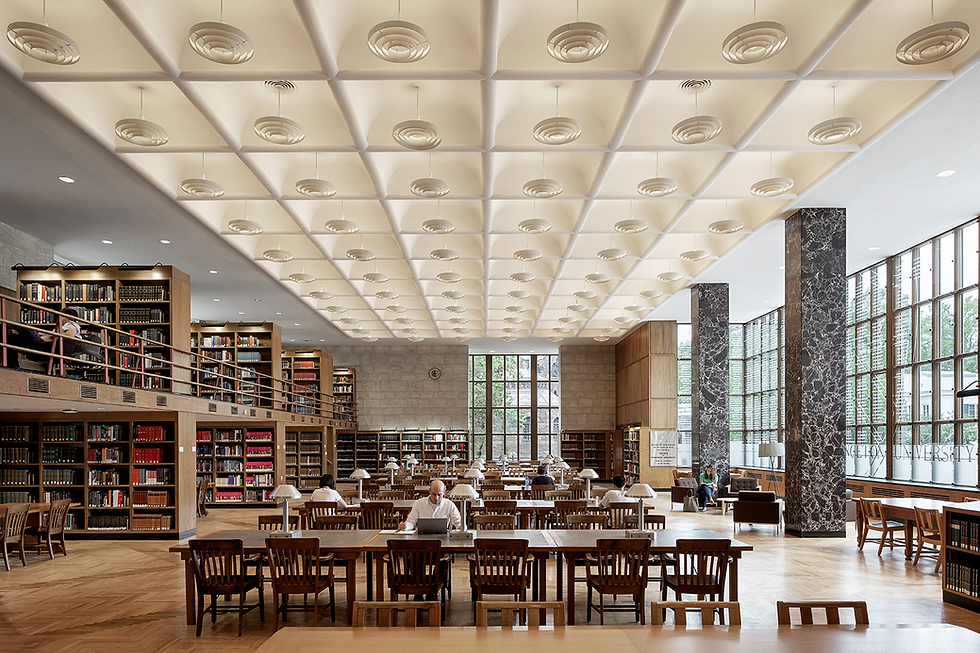Princeton University
- Paschar
- Mar 12
- 3 min read
Princeton University is the smallest of the Ivy League’s Big Three (Harvard, Princeton, Yale), providing students excellent opportunities for individualized attention and collaborative projects with faculty members.
While Princeton does offer engineering programs, it does not offer a business major, similar to other top-tier universities. Located in the affluent suburban area of Princeton, New Jersey, it offers a distinctly different atmosphere compared to Yale or Harvard.

Princeton, NJ
Renowned Programs: Molecular Biology Engineering Computer Scinece Philosophy Mathematics History Economics Public and International Affairs
Princeton University stands out among top-tier American universities due to its exceptional faculty and unique undergraduate-focused environment. Although it's a research institution, Princeton lacks extensive graduate programs, enabling faculty members to dedicate significant attention to undergraduate students.
Focus on Humanities + Faculty Mentoring

Princeton’s Firestone Library
While Princeton offers schools of engineering, architecture, and public policy, it fundamentally emphasizes the "arts and sciences," comparable to humanities and social sciences departments in Korea. There's a university-wide emphasis on the importance of liberal arts, resulting in significant core curriculum requirements (mandatory general education courses) and a compulsory senior thesis for graduation.
“You can have one-on-one meetings with professors you see featured on TV and newspapers.”
Princeton Economics student
All Princeton students must take classes in epistemology, ethics, historical analysis, literature, quantitative reasoning, social analysis, and science and technology. Freshmen choose from 70 writing seminars covering diverse topics, from the physics of music to extraterrestrial life. Humanities students are required, in their junior year, to write two 30-page papers under the mentorship of a professor, separate from regular coursework.
Princeton is well-known for having fewer students and offering fewer courses compared to other Ivy League schools, but it compensates with high-quality education. Its mathematics and philosophy programs are among the best in the United States, and economics, history, and physics programs are also highly distinguished. (Quality here refers specifically to educational excellence and faculty, rather than admission difficulty as often emphasized in Korean universities.) As mentioned earlier, many students highlight the mentoring and thesis-writing experience with faculty members as one of the best parts of their college journey.
"Seniors have a great opportunity to build strong relationships with their thesis advisors."
Princeton Student
Campus Environment
Historically known for exclusivity—women were not admitted until 1970—Princeton retains some of that traditional image but has significantly diversified in recent years. Like many top universities, it is actively pursuing greater diversity. While traditionally favored by humanities students, Princeton has increasingly made efforts to attract STEM and creative students.

"Princeton students form strong bonds, work diligently, collaborate well, and actively encourage each other's endeavors."
Princeton Economics student
However, some students have noted social divides based on income, background, and whether they attended public or private high schools. From personal experience at an American university, I find this phenomenon common across most institutions, not just Princeton.
Princeton has 11 Eating Clubs, similar to exclusive social clubs for juniors and seniors. Over half the student body joins these clubs, which are somewhat comparable to fraternities and sororities at other institutions but differ in being co-ed. Each club has its mansion located on Prospect Avenue.
During the weekdays, club members dine together at their Eating Club, and on weekends they socialize and spend time together.

The Cottage Club
Five of the eleven Eating Clubs select members through a lottery, while the others require an application process. Fees vary by club, with the most expensive club, the Ivy Club, charging approximately $10,000 annually.

The Ivy Club, the oldest Eating Club, dates back to 1879.
In addition to Eating Clubs, most student social life takes place on campus.

Acceptance Rate: 5.5%
고등학교 상위 10% 학생 비율: 96%
고등학교 상위 25% 학생 비율: 99%
SAT Math 25th percentile (하위 25프로) - 730
SAT Math 75th percentile (상위 25프로) - 800
SAT English 25th percentile (하위 25프로) - 710
SAT English 75th percentile (상위 25프로) - 770
Comments